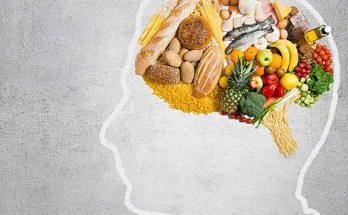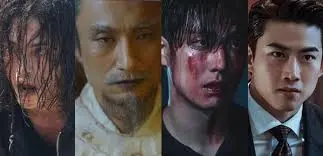
Have you ever watched a K-drama and been completely engrossed not just by the swoon-worthy protagonist but also by the villain? Haven’t we all been there before? That character who gives you the chills but whose sheer boldness, guile, or even warped charm you can’t stop admiring. The ability of Korean dramas and movies to create famous antagonists who are far more than just caricatures of evil is astounding. They are frequently complicated, incredibly imperfect, and occasionally even pitifully human
And who brings these mesmerizing monsters to life? The incredible Korean actors who pour their heart and soul into these darker roles. It takes a special kind of talent to make an audience both despise and be fascinated by a character. These actors don’t just play villains; they become them, leaving an indelible mark on our viewing experience. So, buckle up, because we’re about to delve into the captivating world of Korean actors who have played truly iconic villain roles.
Why Are Korean Villains So Compelling?
Before we name names, let’s ponder for a moment: what makes a Korean villain so uniquely compelling? It’s not just about being “bad.” It’s about layers, isn’t it? Often, these characters have backstories that explain, if not excuse, their descent into darkness. Think about it – childhood trauma, societal pressure, a twisted sense of justice, or an insatiable hunger for power. These elements weave together to create antagonists that are not just evil, but understandably evil, to a degree.
The Nuance of Evil: Beyond Black and White
Korean storytelling often shies away from a simplistic good-vs-evil narrative. Instead, it embraces the gray areas. Villains aren’t always born bad; sometimes, they’re forged in the crucible of difficult circumstances. This nuanced approach allows actors to really dig deep, exploring the psychology of their characters and presenting a performance that resonates on a profound level. We see their humanity, even as they commit heinous acts, which makes them all the more terrifying and, ironically, relatable.
The Power of Performance: More Than Just the Script
Of course, a brilliant script is only half the battle. The actors themselves are the alchemists, transforming words on a page into flesh-and-blood villains that haunt our dreams. They bring a level of intensity, a subtle twitch, a chilling gaze, or a perfectly timed smirk that elevates the character beyond what was originally written. It’s this mastery of their craft that makes us remember them long after the credits roll.
The Unforgettable Faces of Malevolence: Actors Who Stole Our Breath (and Our Peace of Mind)
Alright, the moment you’ve been waiting for! Let’s talk about some of the actors who have truly made their mark by playing villainous roles. These are the performances that became iconic, the characters that we just couldn’t shake off.
Namgoong Min: The Chameleon of Cruelty
When you think of a Korean actor who can switch from charming lead to terrifying antagonist in a blink, Namgoong Min immediately comes to mind. He has a remarkable ability to embody pure, unadulterated evil, yet still maintain a captivating screen presence.
Remember: War of the Son (2015-2016) – Nam Gyu-Man
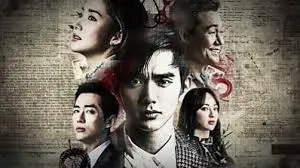
Oh, Nam Gyu-Man! This character is the epitome of a spoiled, psychopathic chaebol heir. Namgoong Min’s portrayal was so chillingly realistic that viewers actually hated him. He perfectly captured the explosive rage, the absolute disregard for human life, and the twisted sense of entitlement that made Nam Gyu-Man a truly unforgettable villain. Remember those anger management issues? Yikes! He made you feel the fear of those around him.
The Girl Who Sees Smells (2015) – Kwon Jae-Hee
Remember, he showed us a different kind of chilling villainy as Kwon Jae-Hee, a seemingly perfect celebrity chef who harbored a dark secret as a serial killer. The contrast between his public persona and his cold, calculating true self was masterfully executed by Namgoong Min, proving his versatility in playing multifaceted antagonists.
Kim Jae-Wook: The Epitome of Elegant Psychopathy
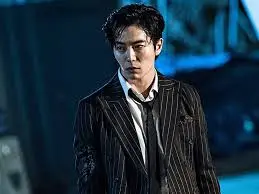
Kim Jae-Wook has a unique aura, often exuding sophistication and quiet intensity. This makes his villainous transformations all the more impactful, as he weaponizes that charm to create truly disturbing characters.
Voice (2017) – Mo Tae-Gu
If you’ve seen Voice, you know Mo Tae-Gu. He’s arguably one of the most iconic and terrifying villains in K-drama history. Kim Jae-Wook’s performance as the serial killer who literally “collects voices” was a masterclass in psychological horror. His calm demeanor, chilling smile, and eyes that held an unnerving emptiness made Mo Tae-Gu a character you’d never want to meet in a dark alley. He was handsome, wealthy, and utterly ruthless – a truly dangerous combination.
Ok Taecyeon: From Idol to Iconic Antagonist
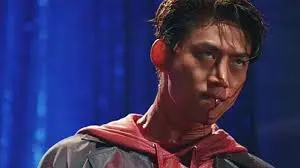
It’s always a pleasant surprise when an actor known for lighter, more heroic roles suddenly plunges into the depths of villainy and absolutely nails it. Ok Taecyeon did just that, stunning audiences with his transformation.
Vincenzo (2021) – Jang Han-Seok / Jang Joon-Woo
Who could forget the shocking reveal in Vincenzo? What started as a seemingly goofy, slightly incompetent paralegal, Jang Joon-Woo, turned out to be the truly sinister and psychopathic chairman of Babel Group, Jang Han-Seok.1 Ok Taecyeon’s transition was phenomenal. He seamlessly switched from naive, childish antics to a terrifyingly cold and manipulative mastermind. His portrayal of Jang Han-Seok’s unhinged glee in his villainy was both disturbing and utterly compelling. It really made you question everything you thought you knew about the character!
Park Sung-Hoon: The New Face of K-Drama Evil
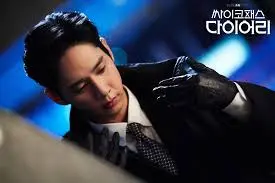
Park Sung-Hoon has quickly carved out a niche for himself as an actor who excels at playing characters you love to hate. His recent performances have solidified his place among the most memorable K-drama villains.
The Glory (2022-2023) – Jeon Jae-Joon
In The Glory, Park Sung-Hoon played Jeon Jae-Joon, one of the primary bullies responsible for Moon Dong-Eun’s traumatic past.2 His portrayal of a wealthy, arrogant, and violent man who believes he’s above consequences was incredibly impactful. He embodied the casual cruelty and entitlement of someone who has never faced true repercussions, making him a truly infuriating and effective antagonist. You just wanted to reach into the screen and give him a piece of your mind, didn’t you?
Queen of Tears (2024) – Yoon Eun-Sung
And then he returned with Yoon Eun-Sung in Queen of Tears. While a different type of villain from Jae-Joon, Eun-Sung’s obsessive and manipulative nature, coupled with his desperate longing for love, made him a captivating character. Park Sung-Hoon once again showed his skill in portraying complex antagonists driven by deeply personal motivations, even if those motivations lead to terrible acts.
Shin Sung-Rok: The Master of Menace
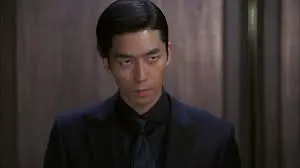
Shin Sung-Rok has a long history of playing memorable villains, often with a distinct, unsettling charm. He’s one of those actors who just looks like he could be hiding something sinister.
My Love From the Star (2013-2014) – Lee Jae-Kyung
Lee Jae-Kyung was the kind of villain who could smile sweetly while plotting your demise.4 Shin Sung-Rok’s portrayal of this calculating and ruthless chaebol heir, complete with a distinctive ring that became a chilling symbol of his villainy, left a strong impression. His cold eyes and subtle shifts in expression perfectly conveyed the character’s psychopathic tendencies. He was truly terrifying, precisely because he could hide his true nature so well.
Kim Byung-Chul: Versatility in Villainy
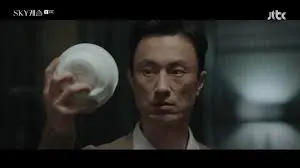
Kim Byung-Chul is an actor who seamlessly transitions between roles, and his villainous turns are always striking, often blending historical gravitas with modern cunning.
Goblin (2016-2017) – Park Joong-Heon
In Goblin, Kim Byung-Chul played the ghost of Park Joong-Heon, the manipulative eunuch who caused the downfall of the Goblin and his sister in their past lives. His chilling, otherworldly presence and the sheer malevolence he exuded made him a truly memorable antagonist, a constant threat that haunted the characters throughout the series. You could almost feel the cold dread whenever he appeared on screen.
Lee Joon: The Unsettlingly Stoic Psychopath
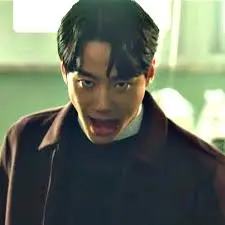
Lee Joon, initially known as an idol, quickly proved his acting prowess by taking on challenging, dark roles and delivering performances that were genuinely disturbing.
Gap Dong (2014) – Ryu Tae-Oh
As Ryu Tae-Oh, a young man obsessed with a serial killer and prone to violent outbursts, Lee Joon delivered a chilling performance. He perfectly captured the character’s unsettling stoicism and sudden bursts of brutality, leaving viewers on edge whenever he was on screen. His blank stare could convey more menace than a thousand angry words.
Choi Min-Sik: The Apex Predator of Korean Cinema
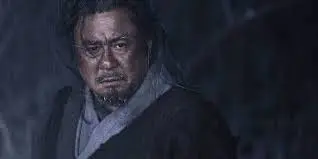
When it comes to iconic villains in Korean cinema, it’s impossible not to mention Choi Min-Sik. He is a legend, and his villainous roles are often cited as some of the most powerful performances in film history.
I Saw the Devil (2010) – Jang Kyung-Chul
In this intense thriller, Choi Min-Sik plays Jang Kyung-Chul, a brutal and remorseless serial killer.6 His performance is raw, visceral, and utterly terrifying. He doesn’t just play a villain; he embodies pure evil, making you feel a deep sense of dread and repulsion. It’s a challenging watch, but his performance is a testament to his incredible range and commitment to his craft.
The Psychology Behind the Performance: Becoming the Bad Guy
How do these actors manage to deliver such convincing and often unsettling performances? It’s not just about memorizing lines, is it?
Deep Character Study: Unpacking the Villain’s Mind
Many actors dive deep into the psychology of their villainous characters. They explore the character’s motivations, their past traumas, and their twisted logic. This often involves researching psychological profiles, studying real-life criminal behavior, or simply spending hours contemplating what would drive a person to such extremes. They try to understand why the villain does what they do, even if it’s abhorrent.
Physical Transformation and Mannerisms: The Devil in the Details
At times, it’s the subtle details that make a villain truly memorable. A specific walk, a peculiar smile, a certain way of holding themselves – these physical transformations can convey a lot about a character’s inner workings. Actors like Kim Jae-Wook in Voice used minimal yet impactful gestures and expressions to convey maximum menace. It’s often the small things that creep under your skin.
Emotional Control: The Art of Restraint and Explosion
A great villain isn’t always screaming or overtly menacing. Often, the most terrifying villains are those who can maintain a calm exterior while harboring a storm of malice beneath. Actors master the art of emotional control, knowing when to explode with rage and when to deliver a chilling line with quiet conviction. This unpredictability keeps the audience on edge.
The Impact of Iconic Villain Roles on an Actor’s Career
Playing an iconic villain can be a double-edged sword for an actor. On one hand, it can catapult them to immense popularity and demonstrate their incredible range. On the other hand, it can be challenging to shake off the “villain” image and be cast in different types of roles.
Breaking Stereotypes: From Bad Guy to Beloved Lead
Many actors who excel at villainous roles eventually get the opportunity to play heroic or romantic leads. This is often a testament to their versatility and the audience’s willingness to see them in a new light. We’ve seen Namgoong Min transition from being the “villain expert” to a beloved leading man in romantic comedies and action dramas. It shows their true acting chops!
Korean Celebrities Who Have Launched Successful Fashion Lines
The Challenge of Typecasting: More Than Just the Evil Grin
However, some actors might find themselves typecast in villainous roles due to the strong impression they left. It requires careful selection of future projects and a conscious effort to showcase different facets of their acting ability to avoid being pigeonholed. But honestly, if you’re that good at being bad, maybe it’s not so bad after all!
The Evolution of Villain Archetypes in Korean Storytelling
The types of villains we see in Korean dramas and films have also evolved over time. From purely evil antagonists to more complex, morally ambiguous figures, the landscape of villainy is constantly shifting.
From One-Dimensional Evil to Complex Psychopaths
Gone are the days of purely mustache-twirling villains. Modern Korean storytelling often delves into the psychological depths of antagonists, exploring the reasons behind their actions. This makes them more intriguing and challenging for both actors and audiences. We’re not just presented with a bad guy; we’re invited to dissect their brokenness.
The Rise of “Gray” Villains: Anti-Heroes and Tragic Figures
Sometimes, the line between hero and villain blurs. We see anti-heroes who do bad things for good reasons, or tragic villains who are victims of circumstance themselves. This adds another layer of complexity to the narrative and allows for richer character development. Think about characters who are driven by revenge for a past injustice – are they truly evil, or just broken?
Conclusion: A Toast to the Masters of Malevolence
From the chillingly composed sociopaths to the explosively angry chaebol heirs, Korean actors have given us some of the most iconic and unforgettable villainous performances in recent memory. They’ve not only entertained us but have also pushed the boundaries of character portrayal, showcasing the depth and nuance of evil in its many forms.
These actors demonstrate an incredible dedication to their craft, transforming themselves to embody characters that are often disturbing, sometimes tragic, but always captivating. Their ability to elicit a strong reaction from the audience, whether it’s fear, hatred, or even a strange sense of empathy, is a testament to their talent. So, the next time you find yourself utterly engrossed in a K-drama because of its compelling antagonist, take a moment to appreciate the extraordinary skill of the actor bringing that iconic villain to life. They truly are masters of their dark craft.
Unique FAQs
Q1: Do actors who play iconic villains ever receive negative attention from fans in real life?
A1: Yes, sometimes. While most fans understand the difference between the actor and their character, some highly impactful villainous performances can lead to a small minority of viewers expressing their dislike or even anger towards the actor on social media. However, many actors take this as a compliment, seeing it as proof that their portrayal was effective!
Q2: Is it harder for actors to play villain roles compared to heroic roles?
A2: It varies for each actor. Some find villain roles more challenging and rewarding because they often require deeper psychological exploration and allow for a wider range of emotions and expressions. Others might find the emotional toll of playing dark characters to be quite heavy. Both hero and villain roles demand immense dedication.
Q3: How do Korean actors typically prepare for such intense villainous roles?
A3: Preparation can involve extensive research into psychology, criminal behavior, and the specific motivations of their character. They might also work with acting coaches, focus on physical changes, and practice unique mannerisms or vocal tones to fully embody the villain. It’s a deep dive into the character’s mind.
Q4: Have any actors who played iconic villains later become known for only good guy roles?
A4: Absolutely! Many actors demonstrate incredible versatility. For instance, Namgoong Min, initially famous for his chilling villains, has successfully transitioned to being a highly popular lead in romantic comedies and action series. It really showcases their range and prevents them from being typecast.
Q5: What makes a K-drama villain stand out from villains in Western media?
A5: Korean villains often stand out due to their complex backstories, which provide a humanizing (though not excusing) context for their evil acts. There’s often a strong emphasis on psychological depth and societal critique. They aren’t just evil for evil’s sake; they often embody deep-seated societal issues or personal traumas, making them feel more grounded and disturbing.

